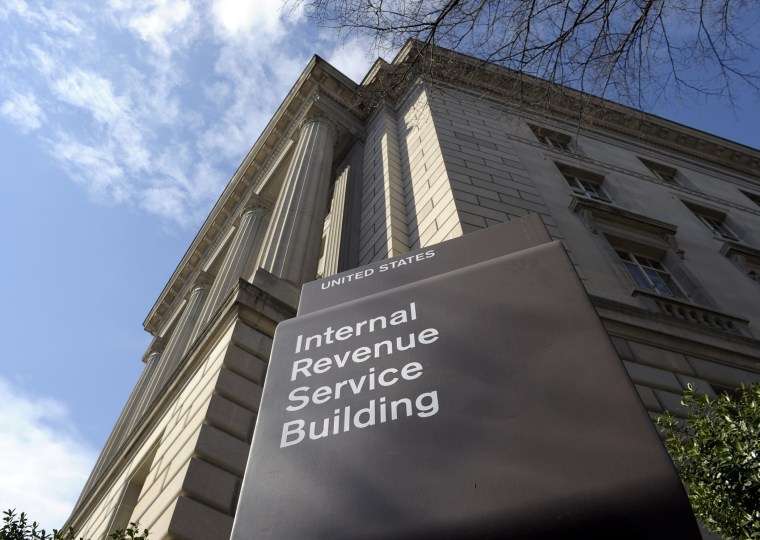As recently as two weeks ago, House Oversight Committee Chairman Darrell Issa (R-Calif.) seemed to be annoying
just about everyone with his increasingly pointless investigation into the IRS "scandal." Democrats were publicly frustrated with Issa's partisan antics and belligerent witch hunt, while Republicans were quietly complaining about Issa's
incompetence.
If the California Republican thought he'd get things back on track with
a new report, he's mistaken.
The IRS singled out conservative Tea Party groups for scrutiny, according to a new report released Monday by Rep. Darrell Issa and Republicans on the House Oversight Committee. The report argues Democrats are pushing a "myth" when they say the IRS closely examined groups of all political stripes.
The Republican report is available in its entirety
here. Note that it says it's "flat out wrong" to claim progressive groups received similar treatment from the IRS. "[T]here is simply no evidence," the document states, "that any liberal or progressive group received enhanced scrutiny because its application reflected the organization's political views."
Soon after, I heard from Oversight Committee Ranking Member Elijah Cummings (D-Md.), whom Issa
refused to let speak at a recent hearing on the matter, who said in a statement, "Chairman Issa has in his possession -- right now -- IRS documents that show definitively that both progressive and conservative groups were highlighted for scrutiny. Unfortunately, the Chairman insists on cherry-picking evidence and simply disregarding documents that directly contradict his partisan narrative, instead promoting misleading claims that hurt his own credibility and that of the Committee."
This seems like a knowable thing, doesn't it? There's nothing subjective about the underlying question: Republicans on the committee believe there is no evidence progressive and conservative groups were subjected to the same scrutiny, while Democrats on the committee believe there's all kinds of evidence progressive and conservative groups were subjected to the same scrutiny. So who's right?
I'll give you a hint: it's not Issa.
Cummings' office noted in its response the key details that didn't make their way into Issa's report:
* A 2010 PowerPoint presentation in Chairman Issa's possession used images of a donkey and an elephant to instruct IRS screeners to look for the term "progressive" alongside "tea party" when reviewing tax-exempt applications. * Screening workshop notes from July 28, 2010, which are also in Chairman Issa's possession, show that groups with "Emerge" and "Progressive" in their titles were flagged for further review along with "9/12 Project" and "Rally Patriots." Tea-Party and Progressive groups were all sent to the same secondary screening group – number 7822 – for additional review.
Let's also not forget the
New York Times report from last summer highlighting the fact that the IRS denied tax exemptions to a variety of loca, liberal organizations -- Emerge Nevada, Emerge Maine, and Emerge Massachusetts -- "because, the agency wrote in denial letters, they were set up specifically to cultivate Democratic candidates."
If the IRS was involved in a conspiracy to target groups on the right for unfair treatment, the agency was really, really bad at it. So bad, in fact, they kept smacking down groups on the left.
Issa and his allies can continue to pretend there's a hidden scandal that only they can see, but there's no reason for anyone else to take this seriously. Indeed, it's tempting to say that if Issa's report is the best congressional Republicans can do, the controversy is "over," but in reality, this story has been over for quite some time.
